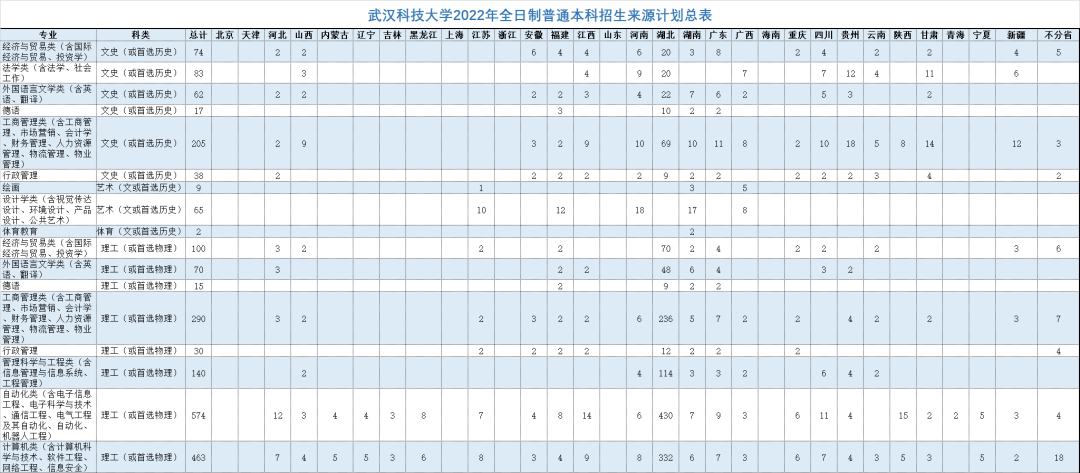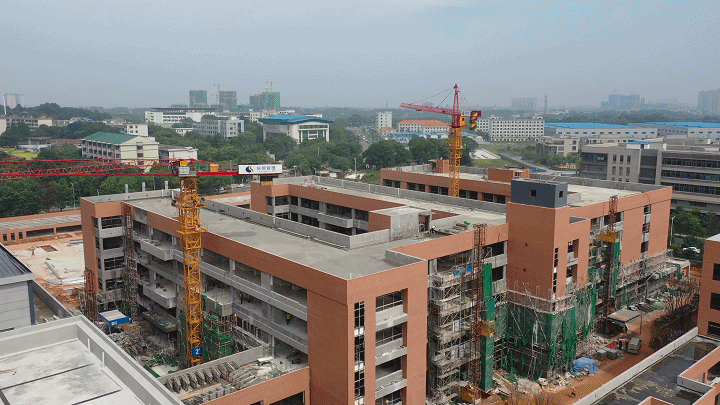How to reshape the world through future education
Author:Guangming Daily Time:2022.08.11
Education is a key variable that has not plasticced the world pattern for a century. Therefore, exploring future education has become a field of widespread attention in recent years. UNESCO, economic cooperation and development organizations, World Economic Forum, EU and other international organizations are important leaders. From their respective perspectives Understand and claim.
UNESCO: Humanist positions that adhere to education
Re -conceiving knowledge and learning how to shape the future of humans and the earth is a basic starting point for UNESCO to explore future education. Therefore, in 2019, the "Future of Education" international committee has been established. Since its establishment, many reports have been released.
For future education, the views of UNESCO can be summarized as the following points.
The first is to emphasize that education changes are imperative. Multiple factors such as new crown pneumonia's epidemic, continuous inequality, climate change, loss of biodiversity, excessive use of earth resources, and subversive technological development have caused education to respond. At present, the world's largest educational change since the emergence of public schools in the 19th century. To this end, it is necessary to strengthen the cooperation of the whole society and allow teachers and students, parents, academic circles, governments, civil organizations, etc. to participate in the future of education, and at the same time, global unity and international cooperation need to be strengthened.
The second is to strengthen education as a commitment to common interests. As a public cause, education should expand the educational right of individuals in the future development, so that it can continue for life and cover information rights, cultural rights, scientific rights, and Unicom rights. At the same time, it is necessary to support personal development and collective prosperity.
The third is to attach importance to the reform of the core element of education. In the future, education should be adjusted in curriculum, teaching methods, and teacher majors. In the curriculum, scientific literacy is used as a priority, and the direction of humanistic goals is ensured. At the same time, the intensity of the curriculum is enhanced, and it focuses on cross -cultural and interdisciplinary learning around related topics. In the teaching law, it should be organized around the principles of cooperation, collaboration and unity. It should cultivate students' ability to intellectual, social communication, and moral action, so that they can transform the world on the basis of empathy and sympathy. At the level of teachers, we should pay more attention to the professional ability of teachers and give full play to their role as a knowledge promoter and academic guidance. At the same time, they should give them greater autonomy and freedom, and further improve the professionalism of teachers, strengthen teachers 'teachers' professionalism Collaboration and promoting teamwork.
Fourth, the school should re -plan the future. The school should be supported by supporting tolerance, fairness, and personal and collective health, and should become a place to gather diverse people and allow them to experience challenges and possibilities that cannot be exposed elsewhere. In terms of digital technology, it should be aimed at supporting schools rather than replace it. It cannot allow public education to rely on digital platforms controlled by private companies. The school also needs to upgrade and transform through a broader learning space.
Organization of Economic Cooperation and Development: Pay attention to future student abilities and school forms
The Economic Organization is one of the international organizations that pay attention to future education. It released the "What Future Schools" reported as early as 2001. Since then, the OECD has successively launched projects such as "shaping the trend of education", "Education 2030: Future Education and Skills" and "21st Century Children", and has become an important force in the international development of future education. The future education exploration of the OECD mainly focuses on the two issues: "How to prepare for education for the future" and "what may be like in the future" and focus on the former.
Regarding how to prepare for education in the future, the challenges brought about by the changes in economic and social development through the organization, and proposed the student learning framework for 2030, namely "2030 learning compass". The attitude and values are four dimensions, including knowledge, interdisciplinary knowledge, cognitive knowledge, and procedure knowledge; skills include cognitive and meta -cognitive skills, society and emotional skills, physical and practical skills; Interpersonal, society and humans. In addition, the framework also proposes the core foundation that students should master, that is, basic knowledge, skills, attitudes, and values. It is a prerequisite for further learning, including cognitive foundation (read, writing and computing ability, and on this basis Digital and data literacy), health foundation (physical and mental health and well -being), social and emotional foundation (moral and ethical). At present, the OECD is promoting how to effectively cultivate these capabilities.
As for the future education may be like, the Organization Organization has imagined the pictures of 6 future schools in the early 21st century. It was updated in 2020 to four types. It is specifically for school education expansion, education outsourcing, schools as learning centers, and borderless learning. These pictures point to possible school changes in the next 20 years. The expansion of school education refers to the continued expansion of formal education, and international cooperation and technological progress support more personalized learning, but the structure and process of school education still exist. Educational outsourcing refers to the traditional education system as the society is more directly involved in the education of citizenship. At the same time, it is driven by digital technology to learn through more diverse, privatized and flexible arrangements. The school as a learning center refers to the school still exists, but diversification and experiments are normal. Borderless learning means that education will be carried out anytime, anywhere, and as society rely entirely on machine strength, regular learning and informal learning will no longer be distinguished.
World Economic Forum: Focusing on the Fourth Industrial Revolution of Education Services in 2020, the World Economic Forum released the White Paper Paper for the first time of the Education 4.0 Global Framework to respond to the fourth industrial revolution. In 2022, the World Economic Forum proposed the establishment of the "Education 4.0 Alliance". The alliance is a multi -party alliance that promotes the global education reform and an inclusive innovation learning environment. At present Wait.
Education 4.0 Global Framework covers 8 key changes to learning content and experience: global citizenship skills, including focusing on the establishment of a broader world, sustainability, and a positive role in global society; innovation and creativity skills, innovation and creativity,,, innovation and creativity,,,, Including the content of the skills required for innovation, that is, to solve complex problems, analyze thinking, creativity, and system analysis, etc.; Technical skills, including development of digital skills, namely programming, digital responsibility, and technology use; Including the content of paying attention to interpersonal emotional intelligence, that is, sympathy, cooperation, negotiations, leadership and social consciousness, etc.; Personalization and self -determined progress learning, that is, from a standardized learning system to a different personality needs of each learner, and there is enough enough to be enough The flexibility can enable each learner to progress according to their progress; barrier -free and inclusive learning, that is, from a learning that is limited to the opportunity to enter the school building to a person who has the opportunity to learn and therefore, it is tolerant Systems; learning based on problems and collaboration, that is, from process -based content distribution to projects and issues -based content distribution. Learning and skills The system that gradually decreases in a person's life to everyone is constantly improving in existing skills and obtains new skills according to personal needs.
At the same time, the World Economic Forum put forward three key opportunities for investment education 4.0 in 2022: new evaluation mechanism, adopting new learning technology, and empowering educators. The new evaluation mechanism needs to collect better and more data, the method of new evaluation individuals and systems, and the method of promoting the skills of the skills should be adopted. For the adoption of new learning technologies, it is necessary to appropriately use technology in learning, and should apply technology to the supplement of teaching rather than replacement and promote the future development of education technology. For empowering educators, targeted investment educators training and innovative education development, and carry out targeted educational human capital plans. To realize the huge potential returns of education 4.0 investment, all stakeholders such as corporate institutions, governments, and educators need to work together in these three opportunities.
EU: Digital education facing Industry 5.0
The European Union is a regional integrated organization, so the exploration of future education is mainly based on regional development needs. In January 2021, the European Commission released "Industry 5.0 -European Industry with Sustainable, People -oriented and Elasticity", which is stronger to adjust the sustainability and people -centered. The elastic new economic ecosystem of impact and pressure achieves the leadership of the EU and leads the system transformation of global society.
As a result, the EU cooperates with the Industrial 5.0 guidance framework to launch the "Digital Education Action Plan". Its main goal is to improve digital literacy and develop Internet potential, establish an efficient digital education ecosystem, so that their education and training systems can adapt to the digital age and let their digital age Everyone can realize online learning. To promote this plan, the European Commission established a digital education center in January 2022 to strengthen digital education cooperation and exchanges at the EU level. The plan determines two areas of priority development. The first is to promote the development of high -performance digital education ecosystems, including 6 actions: (1) Strategic dialogue with the favorable factors of digital education with the member states; Suggestions; (3) Formulate European Digital Education Content Framework; (4) Promote the connection of education, innovate and develop digital equipment; (5) Implementation of digital transformation plans for education and training institutions; Data application in training. The second is to improve the digital skills and capabilities of digital transformation, including 7 actions: (1) to promote the digital literacy and processing false information capabilities of teachers and educators through education and training; Data -related skills; (3) Create European digital skills certificates; (4) provide suggestions on improving digital skills in education and training; (5) transnational collection of students 'digital skills data and introducing EU students' digital ability goals; (6) Strengthen digital skills training; (7) Encourage women to participate in STEM education activities. International organizations attach great importance to how education should plan and design in response to future development, and the possible future forms of possibilities for education such as technology and other factors are relatively small. The essence of people needs to pay attention to the social functions of education, and cannot only be technical and rational.
(Author: Zhang Yongjun, Wu Yunyan, an assistant researcher at the Institute of International and Comparison Education of the Chinese Academy of Education and Sciences. This edition is a special fund project of the “Future Education to Help Rural Revitalization Case Research” in the China Institute of Education and Science.Achievement project approval number: GYI2021011) [Edit: Yuechuan]
- END -
6339 people!The Undergraduate Admissions Program was released in 2022!

Winning the college entrance examination, the competition to the futureThe struggl...
The increase of nearly 2700 degrees!Wangcheng adds the "Ya Li Department" school

Go to a school and drive one party to developA few days ago, Xiaobian came to Yali...